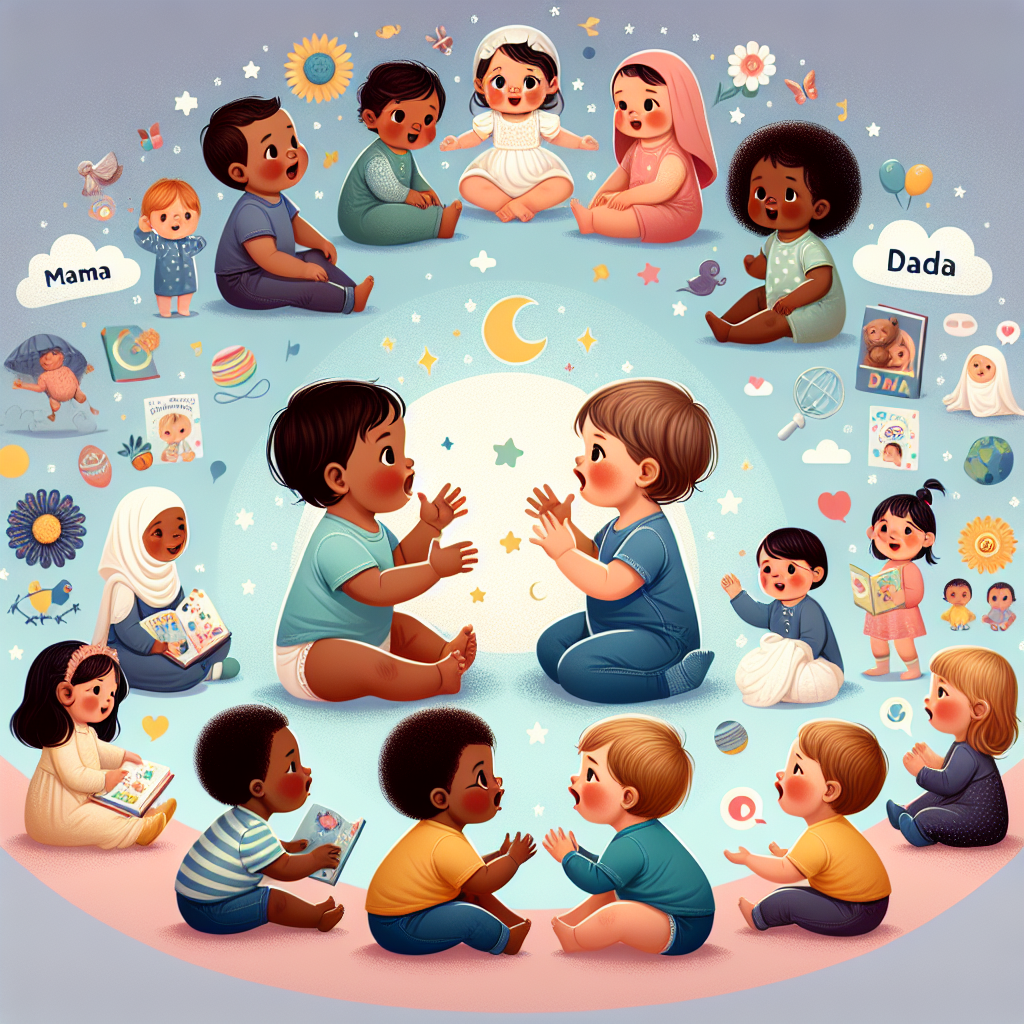Baby's First Word: What to Expect from This Important Moment
Reaching the stage where your baby speaks the first word is an exciting and meaningful moment for any parent. It's a stage that marks the beginning of a new form of communication with your baby and brings with it a wave of excitement and anticipation. In this article, we'll explore the various aspects of baby development, with a particular focus on motor and language development, to help you better understand what to expect during this crucial time.
Motor Development
Motor development is an intrinsic aspect of a child's growth that allows them to explore and interact with the world around them. Before speaking their first words, babies go through a series of motor stages, such as rolling, standing, crawling, and eventually walking. All these activities contribute to the development of muscles and coordination, which are vital for the production of sounds and words.
In the first months of life, you will notice how your baby begins to hold his head up, move his hands and feet, and visually interact with people and objects around him. Each of these micro-movements helps the child develop fine motor skills – the ability to control small, precise movements – and gross motor skills – the ability to perform large movements such as walking or jumping.
Language development
Language is a complex field that begins long before the first word is spoken. Communication begins non-verbally, by crying for different needs, then evolves to babble and repetitive syllables, such as "da-da" or "ma-ma", which eventually can lead to the formation of the first word understood and consciously spoken by the child.
The first words are usually simple and refer to important people or objects in the child's life – "mother", "father", "bottle". It is essential to constantly talk to your baby, read books and sing together, as these activities will encourage language development. Also, recognizing and responding to his attempts at communication is fundamental to the child's progress.
When it comes to language development, every child is unique and develops at their own pace. Some children may say their first words more quickly, while others may take longer to start talking. The importance of language stimulation by parents is undeniable, and patience and encouragement are essential in this process.
What to Expect from First Word
The first time your baby says a word is a memorable moment, but it's only the beginning of a long journey in the world of communication. This is when active and passive vocabulary begins to form. Active vocabulary refers to words that the child can pronounce and understand their meaning, while passive vocabulary includes words that the child understands but cannot yet say.
It is important to note that not all words spoken by a child are always clear or correctly pronounced. The language learning process involves a lot of repetition and encouraging the child's attempts, even when they are not perfect. Celebrating each new word and providing continued encouragement will help your child become more confident in their communication skills.
How to Support Language Development
One of the most effective ways to support your baby's language development is through direct and constant interaction. Talk to your child in simple, but clear and descriptive language. Ask open-ended questions, which encourage open-ended responses and opinion-sharing, and celebrate successes, even small ones, with praise and encouragement.
Role playing and storytelling are also great tools for improving language. When you use objects or toys to create fictional scenarios, you help develop your child's imagination and communication skills. Using picture books and pointing and naming the objects and people in the pictures can also be very helpful.
Conclusion
The moment your baby utters his first word is an important step in his communication and emotional development. As a parent, it's essential to keep an eye on your child's progress and provide constant support, no matter what stage they're at in terms of motor or language development. Patience, love and encouragement will play a key role in this incredible journey of your child's development.
We encourage you to visit our baby section for more resources and information on baby development, or subscribe to our newsletter for helpful tips and ideas on raising them. Together, we can make every word count!














































































































































